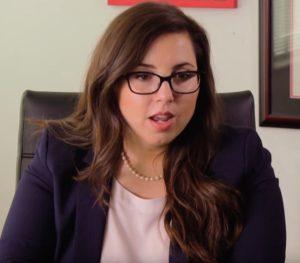DC Revocable Living Trusts
 Revocable living trusts have multiple uses, and are especially useful for those who have to manage real estate in multiple jurisdiction. These trusts can be a somewhat complicated tool, so anyone looking to create a revocable living trust should contact a lawyer to learn more.
Revocable living trusts have multiple uses, and are especially useful for those who have to manage real estate in multiple jurisdiction. These trusts can be a somewhat complicated tool, so anyone looking to create a revocable living trust should contact a lawyer to learn more.
The primary benefits of using a revocable living trust are managing real estate in multiple jurisdictions so that probate can be avoided in multiple jurisdictions and more privacy regarding the distribution of assets. Some individuals request that their attorney prepare a revocable living trust because they are familiar with the concept, and are comfortable with incorporating the use of a revocable living trust in their estate plan. For a number of individuals in the District of Columbia where probate is not necessarily an onerous process, a revocable living trust may not be needed.
Defining a Revocable Living Trust
A revocable living trust is one of the most commonly used types of trust. A revocable living trust is created and funded during the grantor’s lifetime. It is always accompanied by a pour-over will and the pour-over will transfers any assets that remain in the grantor’s sole name on the date of his or her death into the trust after death, even if they have not pre-funded during the grantor’s lifetime.
With a revocable living trust, a grantor reserves the right to amend, revoke, modify, or fund the trust during his or her lifetime while he or she maintains the required testamentary capacity to do so.
Creation of a Trust
There are three primary elements in the creation of a trust. The elements include donative intent, delivery of the property to the trustee, and acceptance by the trustee of the responsibility of managing the trust pursuant to the agreement.
Factors Addressed
There are not required factors that a revocable trust must address, but there are prudent provisions that may be included in a trust. Those would include provisions to address how the trust assets should be managed and provisions that reflect what powers the grantor has reserved. A trust may include language regarding nomination of a trustee as well as successor trustees. A trust may also include several provisions regarding powers of the trustee. Often, trusts include distribution provisions that reflect how the principal and income of the trust will be distributed and names the beneficiaries of the trust.
Misunderstandings of Trusts
Once the grantor passes away or loses the required testamentary capacity, then the trust becomes irrevocable and changes to the trust become more difficult, if at all possible. A common misunderstanding is that a revocable living trust saves the grantor taxes. This is not quite true. The revocable living trust is a tax neutral document. During the grantor’s lifetime, all of the assets in the trust continue to use the social security number of the original grantor, and any income is reflected on the grantor’s personal income tax return.
After the grantor’s death, the revocable living trust is assigned a new tax identification number and any income tax is reported on a fiduciary income tax return. With regard to DC or federal estate taxes, the assets in a trust are considered to be in the grantor’s estate at death and are therefore includable on the estate tax return as part of the growth taxable estate for either DC or federal tax returns.
One primary benefit of a revocable living trust is that it does avoid probate, so although the assets that have been pre-funded into the revocable living trust do not avoid estate taxes, they do avoid the probate process.
Another misunderstanding about revocable living trusts is that the creation of the trust document alone is adequate to control all of the grantor’s assets. This is not the case. For example, if a grantor properly executed a trust, the trust document itself would not control any of his or her assets. The assets would need to be retitled into the name of the trust for the trust provisions to govern the assets. This means that bank accounts are retitled using the name of the trust. It also means that a new deed is prepared for the real estate to transfer it to the trust.
Using a Revocable Living Trust
A revocable living trust can be a useful planning tool for a number of reasons. But the primary reason is that, for individuals who have a number of different of parcels of real estate in multiple jurisdictions or have a number of different types of assets, the trust can provide a vehicle for collecting all of those assets under one management system. A trustee can oversee all of the assets. Another benefit of using a revocable trust is that any assets that have been pre-funded into a revocable living trust avoid probate. If an individual owns real estate in more than one state, which is common in the DMV area, then those assets could avoid probate in multiple jurisdictions. Also sometimes for individuals that have particular concerns about privacy, the provisions of a revocable living trust are often more private than the probate procedure, which can be a public process.


